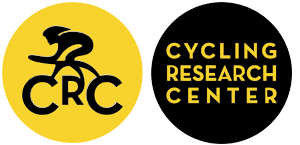The physiological and psychological demands of amateur cyclists riding the full route of the Tour de France
DOI:
https://doi.org/10.28985/1425.jsc.04Keywords:
Endurance training, Non-functional overreaching, Overtraining syndrome, Fatigue, Central nervous system, Grand TourAbstract
The Tour de France represents one of the pinnacles of endurance performance, involving 21 days of cycling, covering more than 3,500km and 50,000m of vertical ascent. Usually, the Tour de France is the sole domain of professional athletes, however, it has become more common for amateurs to complete the identical route in the same number of days as their professional counterparts. The aim of this investigation was to determine the physiological and psychological impact of completing the Tour de France in a cohort of amateur riders. A total of 16 riders completed the 2021 Tour de France route and participated in this study. Data were collected to characterise training in the preceding months (March - June 2021). Power and heart rate were collected throughout the event, alongside daily questionnaires regarding mood, perceived effort and sleep quality. Riders experienced ~300% increase in training load. Physiological markers indicative of overtraining and central nervous system dysfunction within the first four days of the Tour de France were present. There was a decline in both mean and maximal power and heart rate, which was evident throughout the 21 stages and is consistent with symptoms of non-functional overreaching. Compared to professionals, the present cohort experienced a higher TSS, TSS.km-1 and total work done per stage, indicating a higher relative intensity in amateur riders completing a 21-day cycling Grand Tour.
Downloads
Published
How to Cite
Issue
Section
Copyright (c) 2023 Journal of Science and Cycling

This work is licensed under a Creative Commons Attribution-NonCommercial-NoDerivatives 4.0 International License.
Authors contributing to Journal of Science and Cycling agree to publish their articles under a Creative Commons CC BY-NC-ND license, allowing third parties to copy and redistribute the material in any medium or format, and to remix, transform, and build upon the material, for any purpose, even commercially, under the condition that appropriate credit is given, that a link to the license is provided, and that you indicate if changes were made. You may do so in any reasonable manner, but not in any way that suggests the licensor endorses you or your use.
Authors retain copyright of their work, with first publication rights granted to Cycling Research Center.







